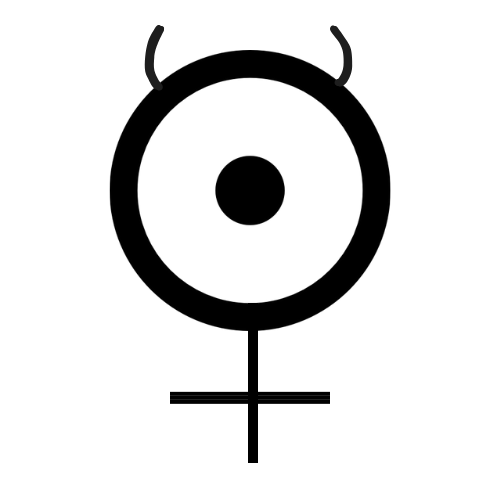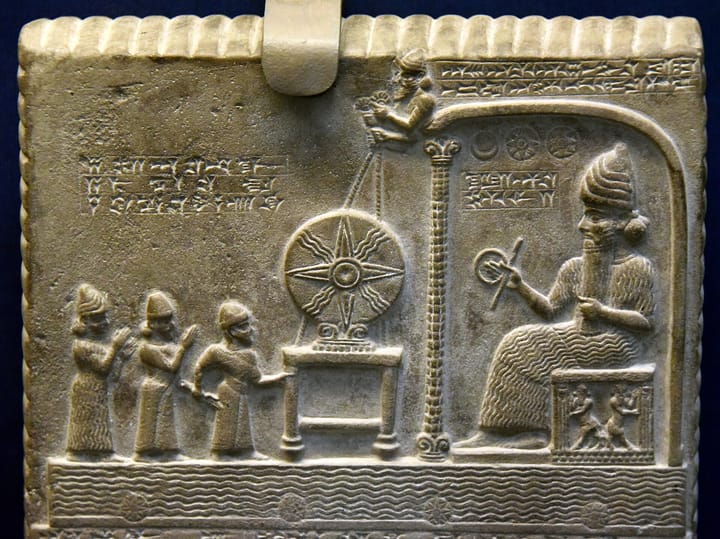The Fine Line of Tricksters and Truth

"Here's my conclusion," I said to my friend Ana, "the truth is that the Devil is like any other god."
This is a fact that is surprising, maybe even offensive, to people who haven't met him. It's a boring and obvious statement to those who know him.
The ultimate defining characteristic of tricksters is that they play with truth. But what is truth? Any person who has practiced the occult notices how fluidly reality shifts. Additionally, any individual who has studied history, anthropology, linguistics, or some kind of comparative subject has failed to grasp the foundation if they don't understand how culture of a place and/or time period decides the different forms of what we take for granted. Normality, taboo, gender, ethnicity, relationship types, feelings, aesthetics, even colors and numbers; conceptions of those things balk consistency across human time and space. Truth is neither singular nor fixed and we can only view it through our individual perception.
Before Lucifer, I knew this intellectually, but rarely had to practically apply it. I am not an inexperienced polytheist, entering into full-time magical and spiritual practice 5 years ago with devotion to Apollo as one of my aims. Not long thereafter, my henotheism expanded into polytheism to embrace deep, meaningful relationships with the planetary spirits. The origins of these 7 deities contain mysteries, but little contradictions. It is apparent who they are, their associations, and their domains. While I could not always have full, clear conversations with them as I do now, they were always honest in what they did get across. "Yes, this will happen." "Alright, here you go." "No, I cannot do that for you." "This is what is possible." "You must move on from this desire you're insisting upon."
As to that last one: bless them for always putting up with me because more than once I refused to capitulate. I pushed onward, sometimes running myself toward self-destructive ends. I grew up being told what was real and what to do my entire life before I relocated 3000 miles away from my family. It didn't matter if whoever was telling me "no" loved me; I wasn't even going to have gods tell me what I could do nor gain after finally reaching freedom.
There's also the fact that words are simply words. As postulated by Plato, language as we know it belongs to the physical world, which is a mere imitation of the realm of the Forms. While Jewish religious philosophy puts much more emphasis on language as the means of relationship between humans and the divine, one must imagine it primarily exists here in Malkuth for such use with G-d's speech in the Bible being metaphorical for his actions. In my own experiences, I have observed how specific and small language is compared to the vast conceptual backdrop of reality. Underneath words is an infinite galaxy of experience yet discovered or articulated, like Betty Friedan's "the problem that has no name" before the term "feminism" was ultimately coined as part of the solution. Somewhere in those depths our desires—both our deepest as well as the ones we only think we want—have their roots in their original wordless states.
It is with those roots that chthonic entities do their most impactful work. Their answer for our conscious and material issues is to rifle within the unseen factors and relationships influencing them. As Ana says in her recent blog post on tricksters, "perhaps the role of the guide is to find the anima of your hidden desires, the ones keeping you stuck or unaware of who you truly are, pull them out of the miasma of stagnation and oblivion, and drag them into the light of day, where they are most embarrassing, so you can face them, integrate them, and finally move your adventure forward."
That is quite possibly why I have never told Lucifer I wanted something and received back, "You can't have that." At least, not at first. It's as if whenever I bring him something the planets refused me, the temptation that defines his very nature must ask instead, "Oh, you want that? What if you had it?"
While I have used this blog in the past to help me process the fresh pains I have sometimes experienced with Lucifer, I prefer to say now that he tempts rather than using the less neutral phrases of "tricks" or "lies." Like the master storyteller and artist he is, his tales immerse me into a subreality that appears to me at the time quite factual. Coming from a human, this behavior would be manipulation based in unhealed self-protective psychological mechanisms that seek safety through power. However, because Lucifer is a god (as I heavily suspect he was in the Near East prior to transitioning or being assigned as humanity's famed adversary), his reveals of the actual pathways forward always come at perfectly calculated moments. In fact, as I have stated before, what makes me more outraged at him after surfacing from his temptations is that I recognize he misleads to motivate me. Once I have completed the needed work, he withdraws as to not inflict unnecessary additional cruelty.
Within this process, I experience "yes" and then am left to reckon with its absence. In that, I am forced to reconcile that the facilitator is a being who loves me and proves so daily by fulfilling other desires I have, many of which I once suppressed out of shame. Therefore, what he doesn't grant me must also be out of love.
So when Lucifer tempts me, it hurts. But when he gently reminds me that if it is truly my wish he is willing to leave, I always refuse. In the end, I get the same result as what the planets would have told me in the first place. Lucifer's way of doing things ensures that I create stories and achieve self-knowledge on the way there. As twisted as it might sound, it turns out I prefer that the trickster lays his scene.



